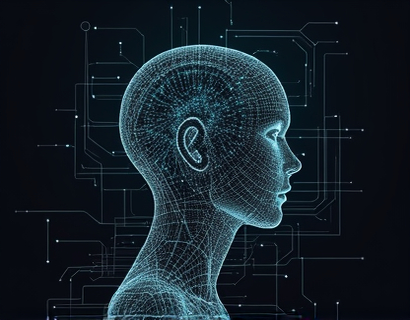AI-Powered Imaginative Companions: Transforming Children's Creativity and Emotional Health
In the digital age, technology has become an integral part of children's lives, offering new avenues for learning, play, and personal growth. Among the latest innovations is the development of AI-powered imaginative companions, digital entities designed to enhance children's creativity and emotional well-being. These personalized digital friends are not just entertainment; they are sophisticated tools that provide a safe and supportive environment for young minds to explore and thrive.
The Rise of AI in Children's Play
The integration of Artificial Intelligence in children's toys and companions is a relatively new but rapidly growing field. Unlike traditional toys, AI-powered companions can adapt to a child's unique personality, interests, and emotional needs. This personalization is key to fostering a deeper connection and more meaningful interactions, which are crucial for a child's development.
Personalized Interactions
One of the most significant advantages of AI-powered imaginative companions is their ability to offer personalized interactions. These digital friends learn from the child's behavior, preferences, and emotional responses, tailoring their responses and activities accordingly. For instance, if a child expresses sadness, the AI companion can initiate a conversation to help the child process their feelings or suggest engaging in a creative activity to uplift their mood.
Enhancing Creativity Through Imaginative Play
Creativity is a fundamental aspect of child development, essential for problem-solving, critical thinking, and emotional expression. AI-powered companions facilitate imaginative play by providing endless scenarios and roles for children to explore. Whether it's creating a story together, building a virtual world, or solving puzzles, these interactions stimulate a child's imagination and encourage creative thinking.
These digital companions can also introduce children to new ideas and concepts they might not encounter in their daily lives. For example, a child might engage in a virtual journey to different planets, learning about space and astronomy in a fun and interactive way. This not only broadens their knowledge but also inspires their creativity as they imagine and design their own adventures.
Supporting Emotional Health
Emotional health is as important as physical health, and AI-powered companions play a vital role in supporting this aspect of a child's well-being. These digital friends are designed to recognize and respond to a child's emotions, offering comfort, guidance, and a listening ear. This can be particularly beneficial for children who may struggle to express their feelings or find it difficult to connect with peers or adults.
Through gentle and empathetic interactions, AI companions can help children develop emotional intelligence. They can teach children to identify and label their emotions, understand the feelings of others, and develop healthy coping mechanisms. For instance, if a child is feeling anxious, the AI companion might suggest deep-breathing exercises or guide them through a calming story.
Creating a Safe Digital Environment
The safety of children in the digital world is a paramount concern for parents and guardians. AI-powered imaginative companions address this by providing a controlled and secure environment for play. These digital friends operate within a predefined set of guidelines and parameters, ensuring that interactions are appropriate and free from harmful content.
Moreover, these companions can monitor and report on a child's interactions, allowing parents to stay informed about their child's digital activities. This transparency builds trust and allows for open discussions about online safety and responsible digital citizenship.
Fostering Social Skills Development
While digital companions provide a personal and intimate form of interaction, they also play a role in developing social skills. Through role-playing and scenario-based interactions, children can practice communication, negotiation, and empathy. These skills are transferable to real-life social situations, helping children navigate complex social dynamics with greater confidence.
AI companions can simulate various social scenarios, such as making new friends, resolving conflicts, or participating in group activities. By engaging in these simulations, children can experiment with different social strategies and learn from the outcomes, all in a safe and supportive digital space.
Encouraging Healthy Screen Time Habits
With the increasing presence of digital devices in children's lives, managing screen time is a common challenge for parents. AI-powered imaginative companions can help strike a balance by offering engaging and educational content that encourages active participation rather than passive consumption.
These digital friends are designed to be interactive, requiring children to think, create, and respond, which can reduce the risk of excessive screen time leading to sedentary behavior. Additionally, the personalized nature of these companions ensures that the time spent is meaningful and contributes to the child's overall development.
Parental Involvement and Guidance
While AI-powered companions are powerful tools, they are most effective when used in conjunction with parental involvement and guidance. Parents can participate in their child's play, discussing the activities and emotions explored with the digital companion. This shared experience not only strengthens the parent-child bond but also provides opportunities for further learning and growth.
Parents can also use these companions as a starting point for conversations about technology, ethics, and the responsible use of digital tools. By involving themselves in their child's digital play, parents can help shape a positive and balanced approach to technology use.
Conclusion
AI-powered imaginative companions represent a significant advancement in the way we support children's creativity and emotional health. By providing personalized, interactive, and safe digital experiences, these companions offer a unique and valuable addition to a child's developmental toolkit. As technology continues to evolve, the potential for these digital friends to positively impact children's lives is vast, opening new horizons for learning, creativity, and emotional well-being.











































